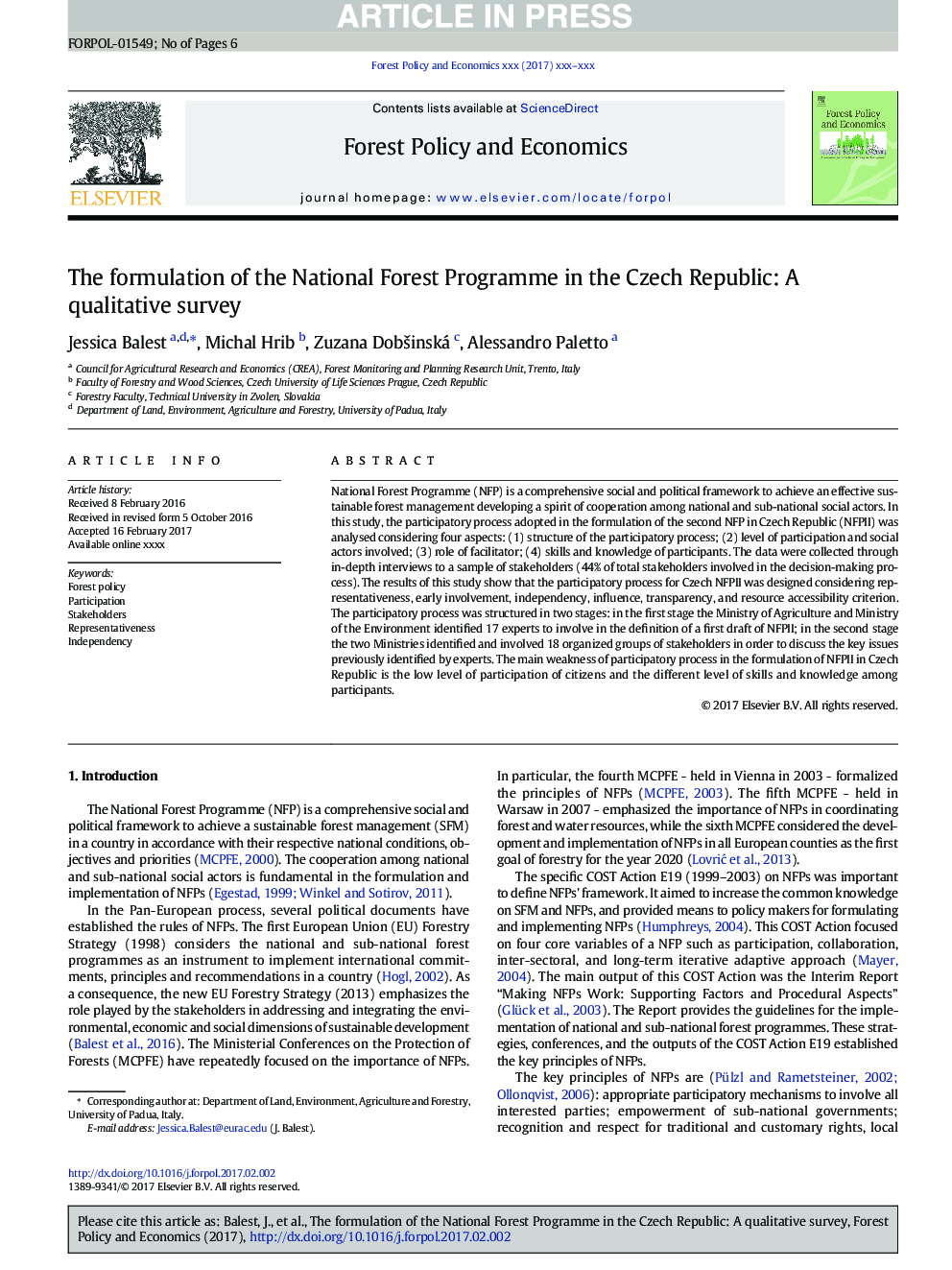| Article ID | Journal | Published Year | Pages | File Type |
|---|---|---|---|---|
| 6544788 | Forest Policy and Economics | 2018 | 6 Pages |
Abstract
National Forest Programme (NFP) is a comprehensive social and political framework to achieve an effective sustainable forest management developing a spirit of cooperation among national and sub-national social actors. In this study, the participatory process adopted in the formulation of the second NFP in Czech Republic (NFPII) was analysed considering four aspects: (1) structure of the participatory process; (2) level of participation and social actors involved; (3) role of facilitator; (4) skills and knowledge of participants. The data were collected through in-depth interviews to a sample of stakeholders (44% of total stakeholders involved in the decision-making process). The results of this study show that the participatory process for Czech NFPII was designed considering representativeness, early involvement, independency, influence, transparency, and resource accessibility criterion. The participatory process was structured in two stages: in the first stage the Ministry of Agriculture and Ministry of the Environment identified 17 experts to involve in the definition of a first draft of NFPII; in the second stage the two Ministries identified and involved 18 organized groups of stakeholders in order to discuss the key issues previously identified by experts. The main weakness of participatory process in the formulation of NFPII in Czech Republic is the low level of participation of citizens and the different level of skills and knowledge among participants.
Related Topics
Life Sciences
Agricultural and Biological Sciences
Forestry
Authors
Jessica Balest, Michal Hrib, Zuzana DobÅ¡inská, Alessandro Paletto,
